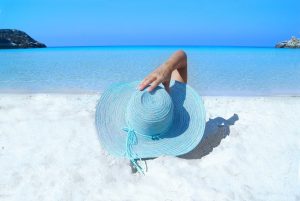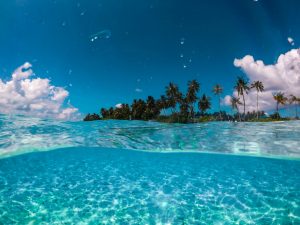More than just a simple festival, Heiva has become the symbol of the Polynesian culture and an iconic event for people proud of their heritage.
In Tahitian, the word Heiva (hei meaning to assemble, and va meaning community places) refers to activities, pastimes, physical exercise, and festivals. Music, dancing, singing, and sporting events have always held an important place in Polynesian communities.
These performances highlight the drama of an opera and the distinct imprints of an ancestral tradition. The dances are unique creations, for which the dancers train for six months or more. Text music, choreography, and costumes are based on a historical or legendary theme.
Since its creation, the Heiva I Tahiti has also been a showcase for traditional sports and games. The traditional sporting events are based on ancient athletic activities and include; a stone lifting competition, a javelin-throwing event, outrigger canoe races, a copra competition, and a fruit carrying competition.
Heiva is held all around the Islands of Tahiti generally around mid-July, centered in Papeete but celebrated throughout all the Islands of Tahiti.


